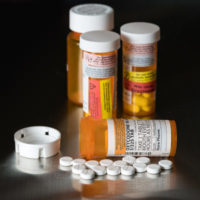Driving Safely on Prescription Medications
September 20, 2019 While it is unclear exactly how many Americans take one or more prescription medications, large-scale reports estimate the number to be between 55% and 75%. While some prescription drugs do not compromise a person’s ability to drive, many others do.
While it is unclear exactly how many Americans take one or more prescription medications, large-scale reports estimate the number to be between 55% and 75%. While some prescription drugs do not compromise a person’s ability to drive, many others do.
There are more than 6 million car accidents in the United States every year – and one way to avoid getting into a dangerous or deadly collision is to make sure prescription medications do not make it unsafe to operate a motor vehicle before a person gets behind the wheel.
A Message From the FDA
Some medications affect a person’s ability to drive for a short period of time, whereas others cause long-term side effects. More than 40,000 men, women, and children die from car accident-related injuries annually – and millions of others sustain serious, life-changing injuries. When it comes to automobile collisions, driving impaired is a well-known and documented hazard. Even when someone takes a medication as prescribed by a doctor, it is important to remember that an array of dangers can still be present.
Here are a few examples of side effects from medications that can make it deadly to get behind the wheel:
- Nausea;
- Slowed movement;
- Fainting;
- Drowsiness and/or sleepiness;
- Inability to focus or pay attention, excitability, and:
- Blurred vision
Medications That Make Driving Unsafe
Certain medications – or a combination of different medications that cause dangerous drug interactions – are known to make driving unsafe. Medications containing codeine, benzodiazepines (anti-anxiety medication), opioids, anti-seizure drugs, certain antidepressants and antipsychotics all compromise a person’s ability to drive. So do sleeping pills, medications that contain stimulants, muscle relaxants, and some cold and allergy medications (including over-the-counter ones).
Talking to Healthcare Professionals About Side Effects and Driving Safely
One way to drive safely while taking prescription medications is to talk to your doctor or pharmacist. Healthcare professionals should always be able to discuss a medication’s side effects and in some cases, they may also be able to change a patient’s dosage in order to minimize dangers associated with driving.
Here are just a few other safety tips for being responsible behind the wheel while taking medication(s), direct from the FDA:
- Read all medication warning labels and observe directions for use. If the pharmacist provides handouts, make sure to read them as well;
- Do not suddenly stop taking a medication – or adjust its dosage – without first speaking to the prescriber, and:
- Make sure to tell your prescriber all medications (both prescription and over-the-counter drugs), supplements, and herbal products that you take. If you experience a reaction to medicine, tell your health care provider right away.
If you were injured in an automobile accident because another driver was impaired, you may want to consider filing a personal injury claim. To speak with an attorney who can help answer questions about your injuries, please contact a representative at our firm directly.
Philadelphia Personal Injury Lawyers at Galfand Berger, LLP Representing Injured Individuals Since 1947
If you have questions about injuries you sustained in a motor vehicle collision, please contact our Philadelphia personal injury attorneys. Galfand Berger has offices located in Philadelphia, Bethlehem, Lancaster, and Reading we serve clients throughout Pennsylvania and New Jersey. To schedule a consultation, call us at 800-222-8792 or complete our online contact form.
 Google Screened
Google Screened
